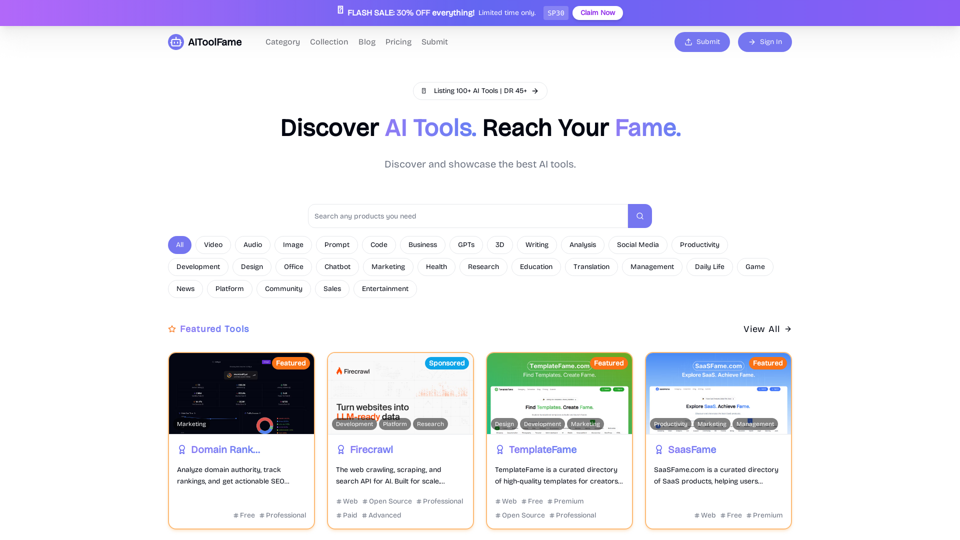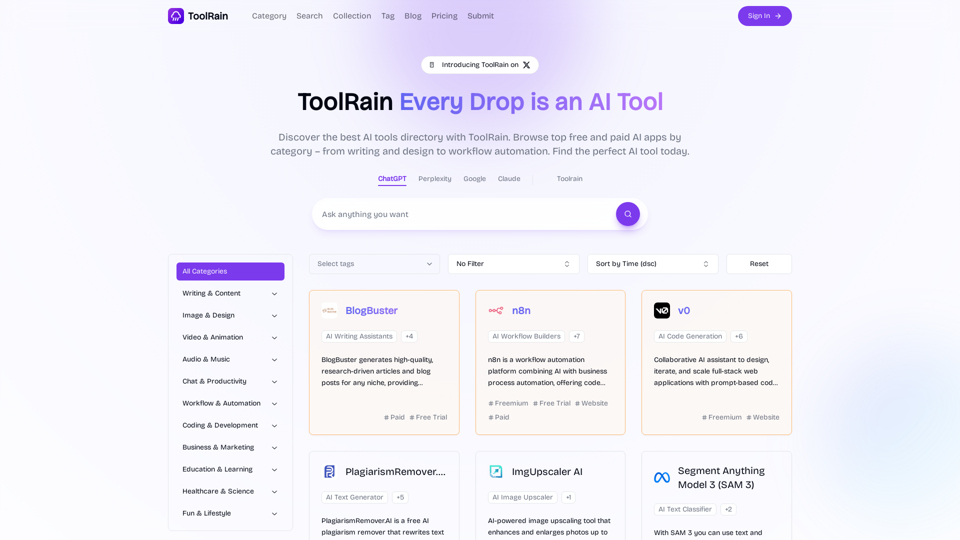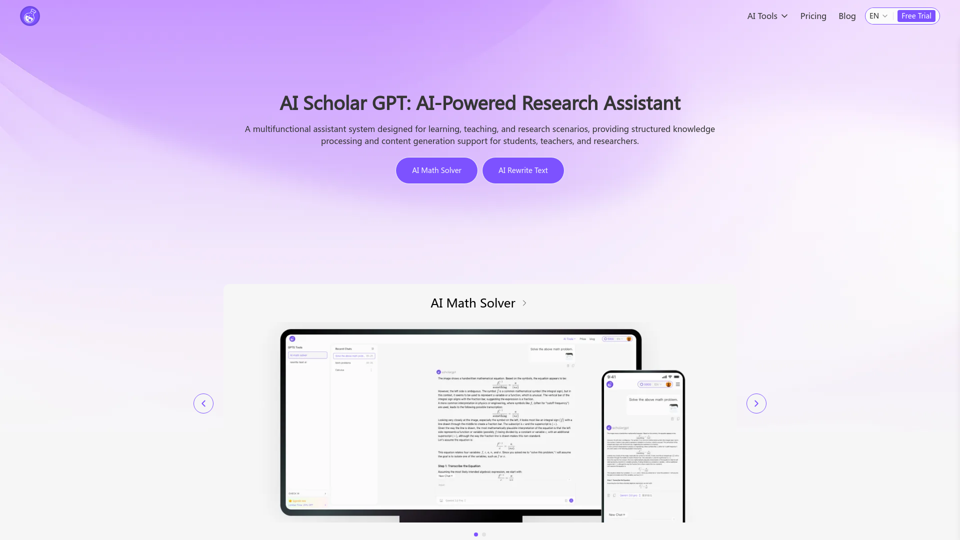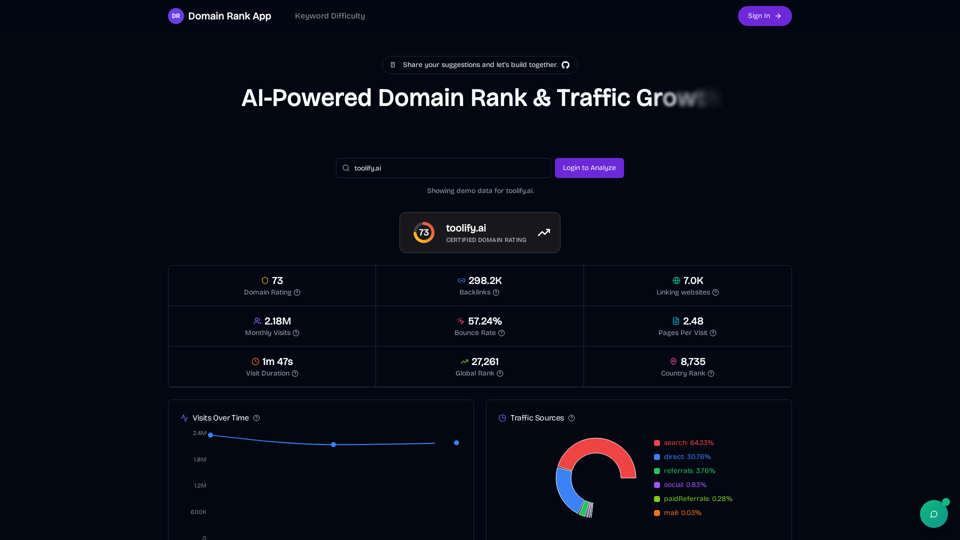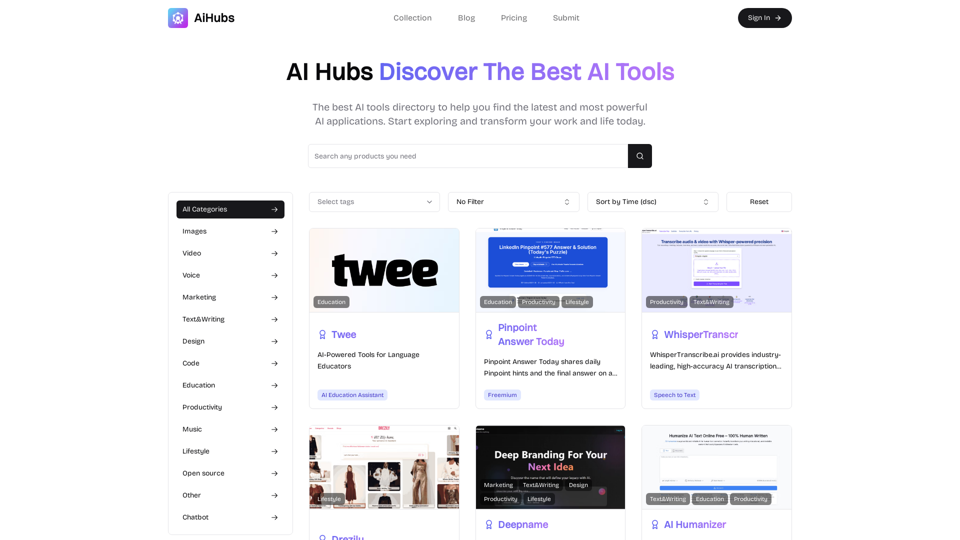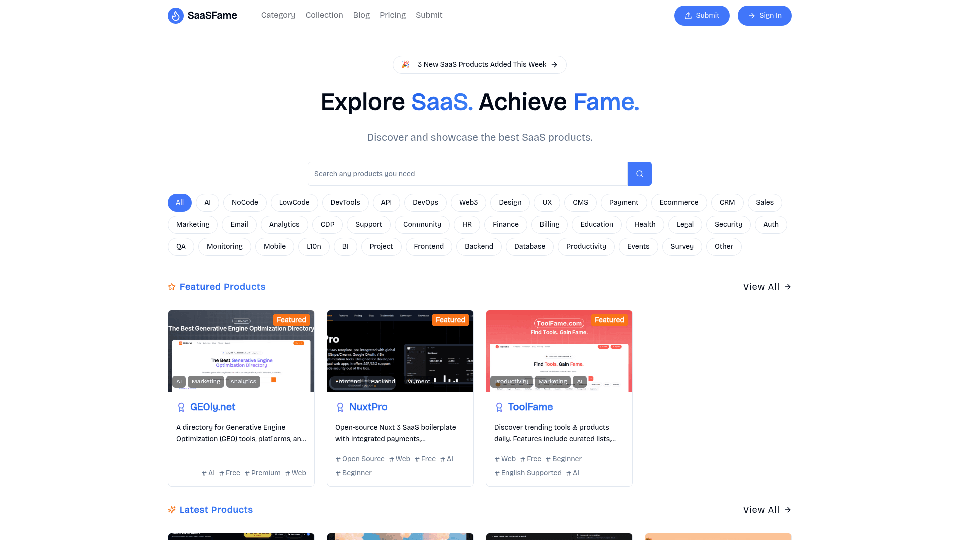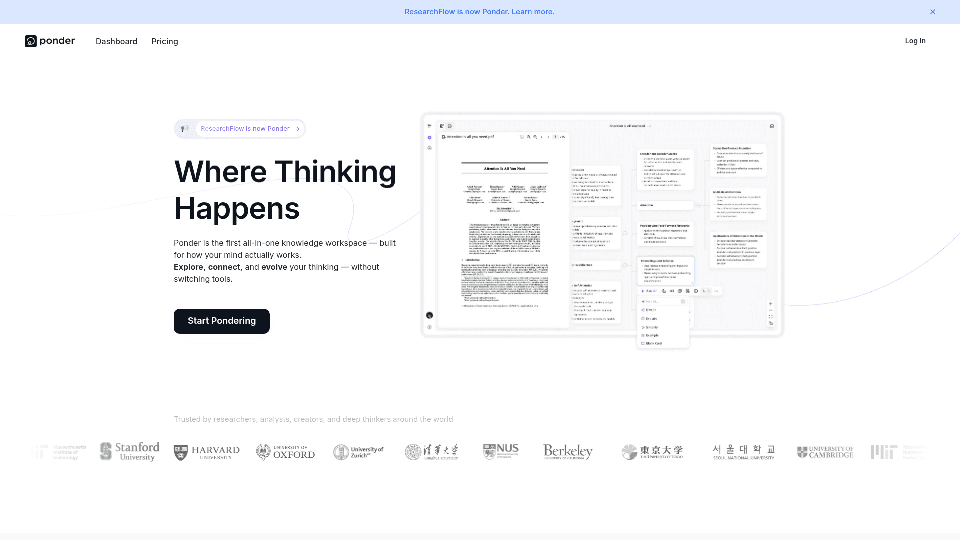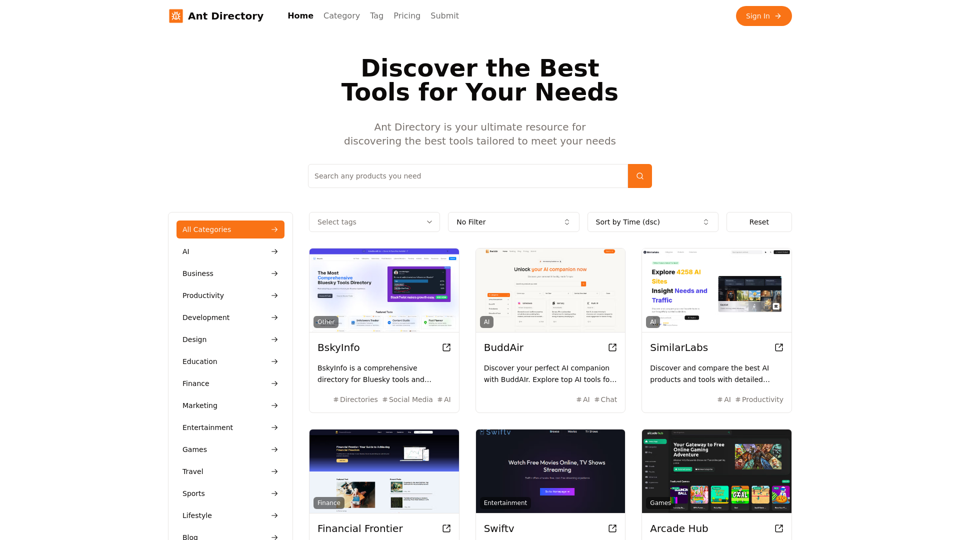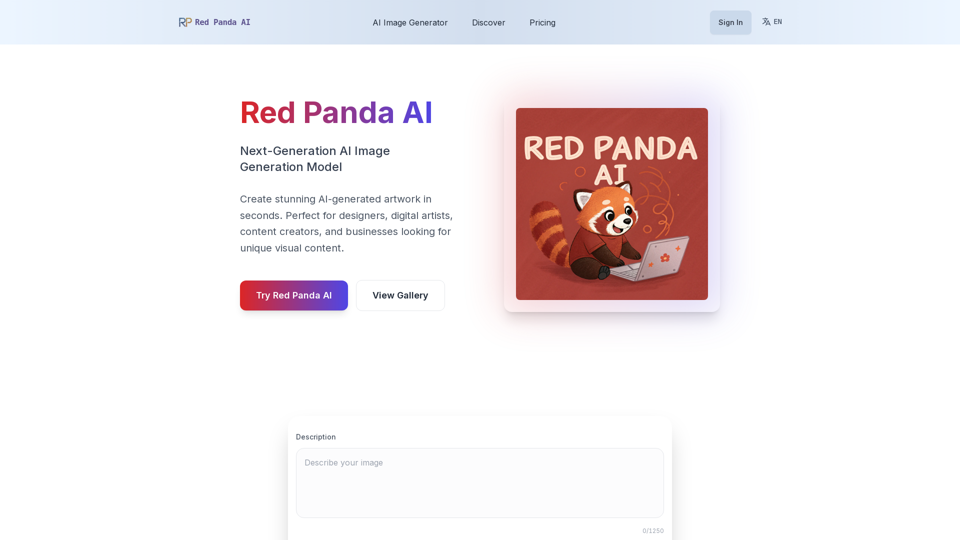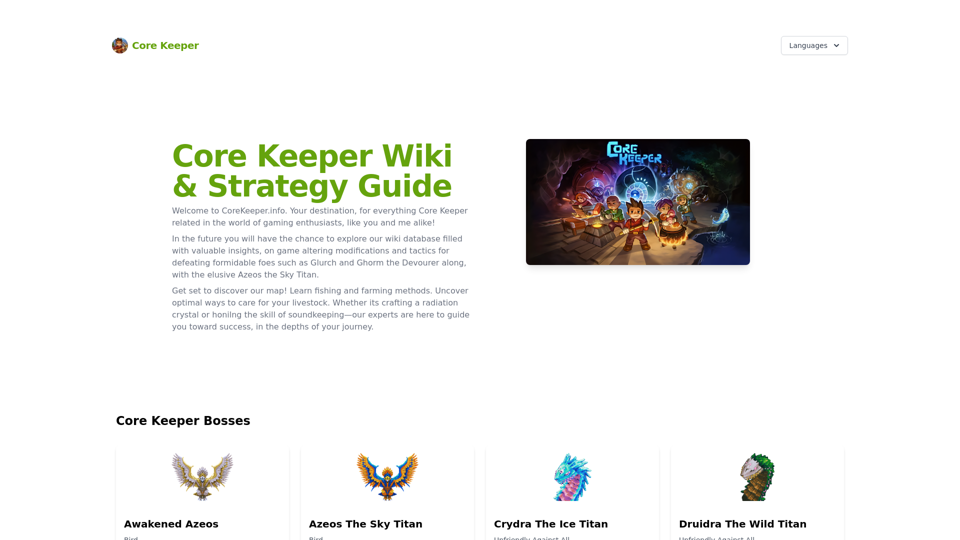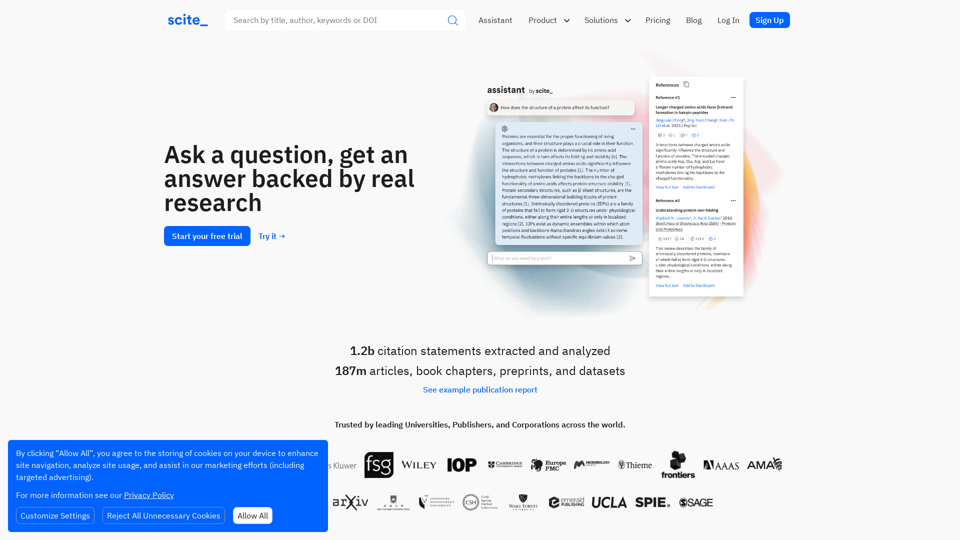AI 연구 도구란 무엇인가?
AI 연구 도구는 인공지능을 활용하여 연구자들이 다양한 측면에서 그들의 작업을 지원하는 특수 소프트웨어 애플리케이션입니다. 이러한 도구는 데이터 분석을 자동화하고, 문헌 검토를 강화하며, 통찰력을 생성하고, 연구 과정을 간소화하도록 설계되었습니다. 고급 알고리즘과 기계 학습 모델을 통합함으로써 AI 연구 도구는 방대한 데이터 세트를 효율적으로 탐색하고 패턴을 식별할 수 있게 하여 학문적 및 전문적 환경에서 생산성과 혁신을 크게 향상시킵니다.
AI 연구 도구의 이점
연구 워크플로우에 AI 연구 도구를 도입하면 연구 과정을 변혁시킬 수 있는 수많은 이점을 제공합니다:
- 향상된 효율성과 정밀성: AI 도구는 대용량 데이터 세트를 신속하게 처리 및 분석하여 인간의 오류를 줄이고 연구의 신뢰성을 높입니다.
- 예측 분석: 이러한 도구는 트렌드와 결과를 예측할 수 있게 하여 데이터 기반 의사 결정을 지원합니다.
- 작업 자동화: 반복적인 작업을 자동화하여 운영 비용을 줄이고 복잡한 연구 측면에 집중할 수 있게 합니다.
- 간소화된 텍스트 분석: 자연어 처리(NLP)는 문헌 검토와 데이터 수집을 단순화합니다.
- 실시간 데이터 통찰력: 지속적인 모니터링을 통해 최신 개발에 대한 즉각적인 통찰력을 제공합니다.
- 원활한 협업: AI 플랫폼은 팀 협업을 지원하며, 공유 데이터와 연구 결과를 조직화합니다.
AI 연구 도구 사용 방법
AI 연구 도구를 선택하고 사용할 때, 연구 요구 사항을 효과적으로 충족할 수 있도록 다음 요소를 고려하십시오:
- 데이터 품질과 출처: 고품질의 동료 검토된 데이터를 활용하는 도구를 선택하십시오.
- 통합 기능: 기존의 연구 소프트웨어 및 데이터베이스와의 호환성을 확인하십시오.
- 사용성: 생산성을 높이고 학습 곡선을 최소화하기 위해 사용자 친화적인 인터페이스를 선택하십시오.
- 맞춤화: 특정 연구 요구 사항을 충족할 수 있도록 맞춤화가 가능한 도구를 찾으십시오.
- 비용 고려 사항: 초기 투자 및 유지 비용을 포함한 총 소유 비용을 분석하십시오.
- 지원 및 교육: 전담 지원 및 교육 자원의 가용성을 보장하십시오.
- 보안 표준: 엄격한 보안 프로토콜 및 윤리적 기준 준수를 확인하십시오.
- 확장성: 증가하는 데이터 볼륨을 수용할 수 있도록 연구 요구 사항에 맞게 확장 가능한 도구를 선택하십시오.
AI 연구 도구를 신중하게 선택하고 효과적으로 사용함으로써 연구자는 작업의 품질과 영향을 향상시켜 다양한 분야에서 혁신과 발견을 주도할 수 있습니다.
